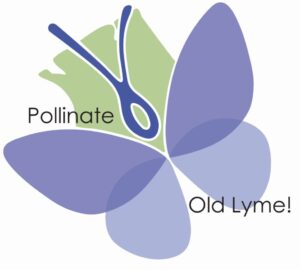 OLD LYME — A town-wide initiative in Old Lyme will give migrating birds and butterflies a more bountiful stopping ground this year. Pollinate Old Lyme! launches Jan. 26 with two free presentations via online Zoom meetings open to the public. The one-hour Zoom presentations will be held at 12 noon and 6 p.m. and require pre-registration via email.
OLD LYME — A town-wide initiative in Old Lyme will give migrating birds and butterflies a more bountiful stopping ground this year. Pollinate Old Lyme! launches Jan. 26 with two free presentations via online Zoom meetings open to the public. The one-hour Zoom presentations will be held at 12 noon and 6 p.m. and require pre-registration via email.
Created by the Old Lyme Board of Selectmen’s Sustainable Old Lyme Team, the initiative is part of a growing national effort to establish pollinator-friendly habitats and food sources for wildlife.
“A growing number of people want to support pollinating insects and birds, but they don’t know where to start, or they need help along the way. We’re going to make it easier and fun to do as a community,” said Suzanne Thompson, a gardener and co-leader of the Pollinate Old Lyme! initiative.
She adds, “Simple actions can add up to big benefits for our natural ecosystem. So many people took up vegetable gardening and really got back out into nature this past year. We see that continuing in 2021, so we’re looking forward to sharing ideas and information across our community.”
The Old Lyme initiative is part of Pollinator Pathway Northeast (Pollinator-pathway.org), with its geographic focus on Massachusetts to Pennsylvania. The program emphasizes including native plants and trees on one’s property, managing invasive species, reducing or eliminating pesticide and herbicide use, and practicing pollinator-friendly lawn care. There are activities for non-gardeners, too; “green thumbs” are not required.
Pollinators, including native bumblebees, and species of butterflies, insects, birds, and bats are threatened with extinction due to the loss of their natural habitats that provide food and shelter, widespread use of pesticides and other lawn chemicals, and climate change.
Pollinate Old Lyme! will encourage residents to take steps to support pollinators which live or migrate through these habitats. Simple actions such as adding native plants to flower boxes or choosing to keep native oaks, maples and shrubs contribute to this ecosystem.
Residents will see an increase in butterflies and birds in their backyards by planting Milkweed for Monarch Butterflies or Cardinal Flower for hummingbirds. Many species of pollinators depend on specific native plants for food and survival.
The Jan. 26 web presentations will introduce Old Lyme residents to the new initiative and share simple ways they can be a part of the regional “pollinator pathway” which links individual properties and gardens along with public lands and open spaces. Participants will be invited to add their location to a virtual map of the Northeast Pathway.
Over a dozen Old Lyme organizations, including the Duck River Garden Club, the Roger Tory Petersen Estuary Center, and the Old Lyme-PGN Library, are participating by hosting anchor gardens and providing educational opportunities during 2021.
Email [email protected] to sign up for either the 12 or 6 p.m. web presentations and to receive Zoom log-in information. Other questions and information can also be found by emailing [email protected].
This is fantastic. Thank you to everyone involved in bringing this to fruition. We look forward to taking part.